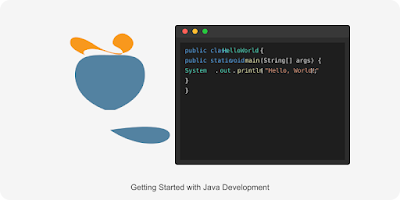Hey there! Earnest Walker here from Atlanta. When I'm not mentoring students, developing software, or flying drones, I like to share what I'm learning on my journey. Today, let's chat about Java and Object-Oriented Programming.
Object-Oriented Programming Made Simple
As someone who's mentored many tech beginners, I've found that relating OOP concepts to real life helps them stick. Let me break down the four main principles:
1. Encapsulation: The Secret Keeper
Think of encapsulation like your smartphone. You use its features through a simple interface (buttons and touchscreen), but all the complex circuitry and code are hidden inside. That's encapsulation - hiding the complicated stuff and only exposing what's needed.
2. Inheritance: The Family Tree
Just like how you might inherit your dad's height or mom's eye color, in programming, classes can inherit traits from parent classes. If we have a Vehicle class with basic features like "move" and "stop," then our Car class can inherit these and add specific features like "honk."
3. Polymorphism: The Shape-Shifter
Polymorphism is a fancy word that means "many forms." Imagine you have a remote control that works with different devices. You press "power," and your TV turns on. Press the same button on your sound system remote, and the sound system turns on. Same action, different behavior based on what you're controlling. That's polymorphism.
Why OOP Matters to Me
As a developer and mentor, I've seen how OOP makes complex projects manageable. When I work on larger applications, breaking things down into objects helps me:
- Organize my code better (no more spaghetti code!)
- Reuse components instead of rewriting them
- Make changes without breaking everything
- Work more effectively with other developers
I first struggled with these concepts when learning Java, but once they clicked, they transformed how I approach programming. Even when I'm working with JavaScript (my preferred language), I use OOP principles to keep my code clean and maintainable.
Starting Your Java Journey
If you're new to Java, don't get overwhelmed by OOP concepts right away. Start with a simple project, get comfortable with the syntax, and gradually incorporate these principles. I'm still learning and improving too!
For hands-on practice, try building a simple address book or to-do list application. This will give you a chance to create classes, use inheritance, and see these concepts in action.
Happy coding!
-Earnest





No comments:
Post a Comment